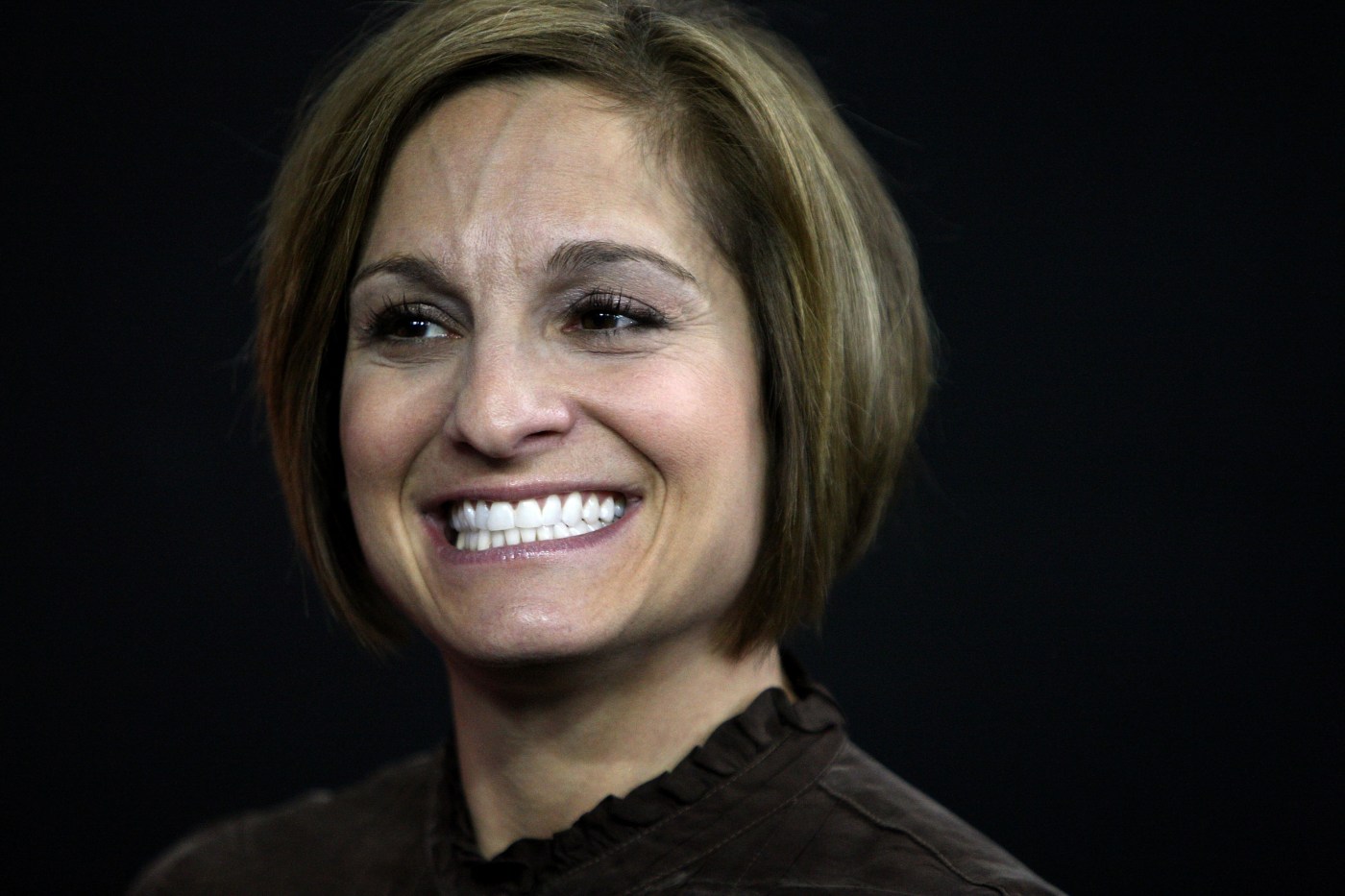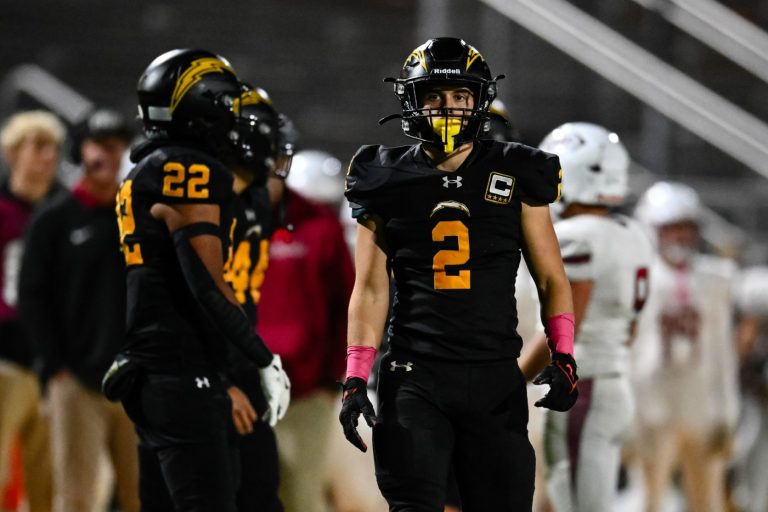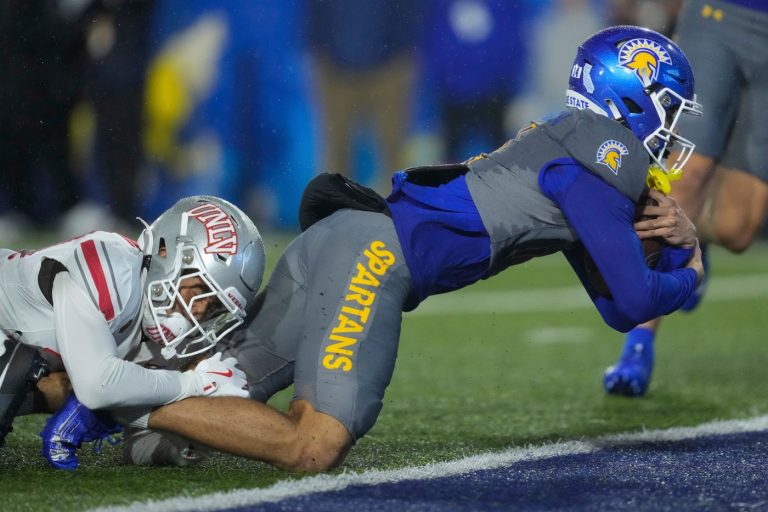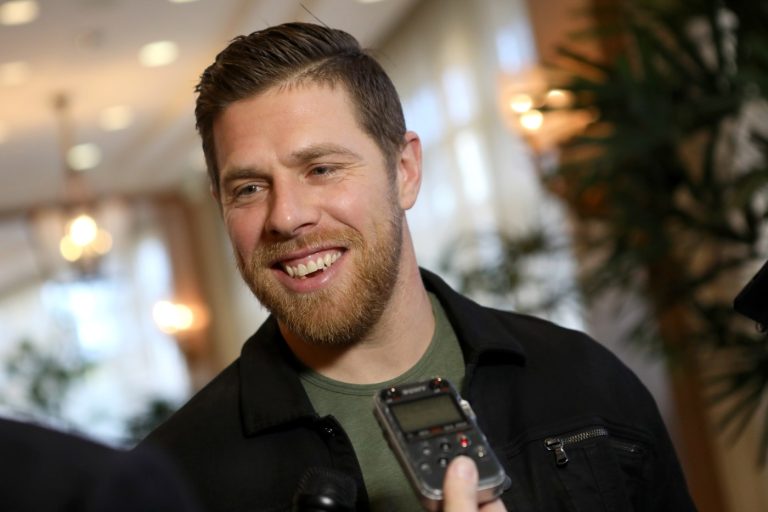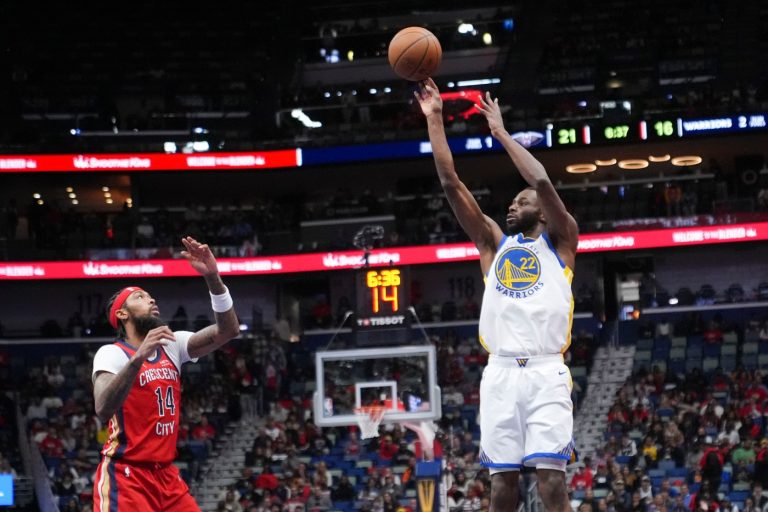Mary Lou Retton opened up — just a bit — about the controversy that erupted over her claim that she couldn’t “afford” health insurance — a situation that prompted her daughters to launch an online fundraising campaign that netted more than $459,000 and was supposed to cover the costs of her monthlong hospital stay last year for a rare and potentially deadly form of pneumonia.
During Retton’s interview Wednesday in her Texas home with a sympathetic correspondent from Entertainment Tonight, the Olympic gymnast hit back at those who questioned why her four daughters needed to open the crowdsourcing fund. She also appeared perplexed by those asked for accountability on how the $459,000 had been spent.
“They didn’t deserve that,” Retton said about the criticism of her daughters launching the spotfund.com campaign. “They were just trying to take care of me.”
“I don’t care about the naysayers,” Retton also said. “There are trolls everywhere. It’s what makes us America. Everybody’s got an opinion.”
But it’s incorrect of Retton to say that the criticism and questions only came from online “trolls.”
Questions also came from news outlets and health journalists, particularly after Retton sat for a softball interview with the “Today” show in January, two months after her health crisis. In the “Today” interview, Retton said that the “bottom line” was that she couldn’t afford health insurance, blaming her plight on the COVID-19 pandemic, her 2018 divorce and pre-existing conditions from multiple surgeries over the years.
But following that interview, The Daily Mail reported that Retton received $2 million in her 2018 divorce settlement and was poised to potentially earn $2 million more in compensation over a legal dispute with the manufacturer of her two metal hip replacements.
USA Today columnist Christine Brennan also wrote that Retton and her daughters had shown an “unwillingness to answer the most basic questions about her health care.” Brennan said those questions naturally arose because Retton’s daughters had sought public donations.
“Had they not done that, Retton’s illness likely would have remained a private matter, never bursting into public view and enticing so many strangers to send money,” Brennan wrote.
Retton landed in the intensive care unit of a Texas hospital last October with what her family described as a rare form of pneumonia that left her “fighting for her life.” On spotfund.com, Retton’s daughter McKenna Kelly revealed that her mother was not insured, but Kelly would not say more.
“Out of respect for her and her privacy, I will not disclose all details,” Kelly said. “We ask that if you could help in any way, that 1) you PRAY! and 2) if you could help us with finances for the hospital bill.”
The spotfund campaign, as of Thursday morning, said that $459,354 has been raised by 8,324 donors.
Retton’s explanation about pre-existing conditions and insurance costs definitely sparked “some mental gymnastics,” according to a report by KFF Health News, which was published by National Public Radio.
KFF Health News senior correspondent Julie Appleby agreed that Retton’s lack of health insurance was “shocking.” But she also expressed skepticism about Retton’s two main reasons for not buying coverage — pre-existing conditions and cost.
Appleby said that Retton could have purchased insurance through Obamacare: Under the Affordable Care Act, which has offered coverage through state and federal marketplaces since 2014, insurers are barred from rejecting people with pre-existing conditions and cannot charge higher premiums for them, either. Appleby also reported that for people with higher incomes, premium costs are capped at 8.5% of household income.
In Retton’s interview this week with “Entertainment Tonight,” the highly decorated public figure explained why she thought that health insurance was not affordable for her. She said that she was no longer at the peak of her fame, when she presumably earned millions from endorsement deals.
Following her divorce, “which took half of everything,” Retton said she made her living doing motivational speaking and appearing at events to sign autographs. During COVID-19 lockdowns, “there was no work whatsoever,” she explained.
“It’s not what it used to be at the height of my fame years ago,” she said. “I was just, you know, doing enough to pay my bills.”
Seven months after her hospitalization, Retton said that doctors “still don’t know what’s wrong” with her and that she needs supplemental oxygen to help with breathing. She said she was “grateful” for all the donations, and maintained there is nothing nefarious about her family’s handling of the funds.
“The bills are still coming in,” Retton said. She explained that the $459,000 is being used to pay those bills. Whatever is leftover will go to the American Lung Association.
